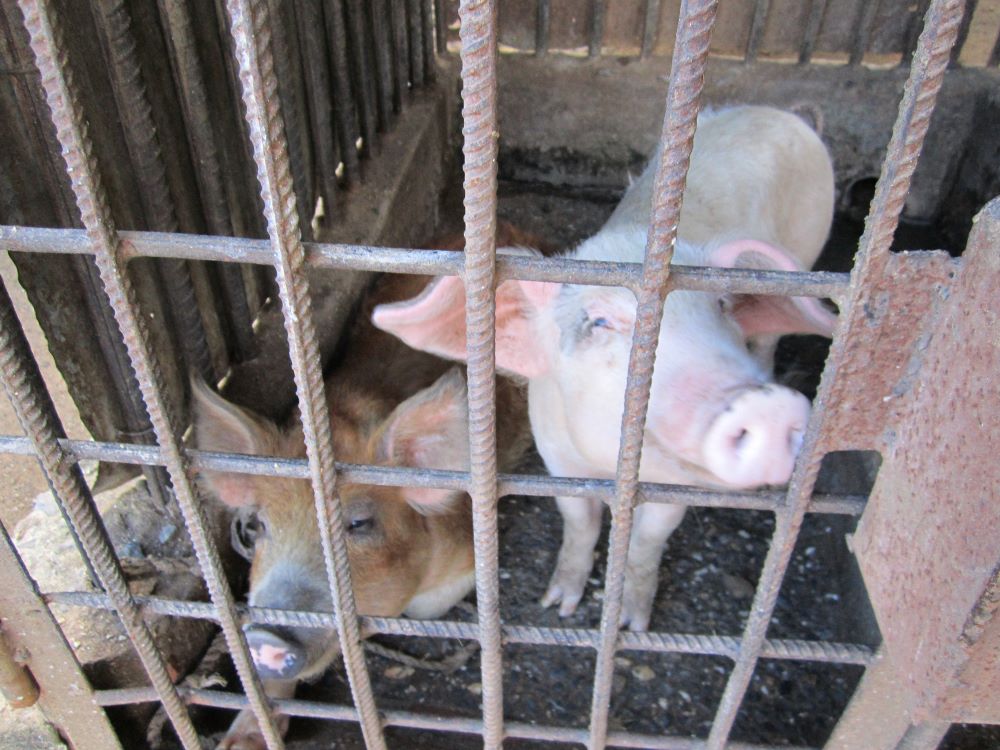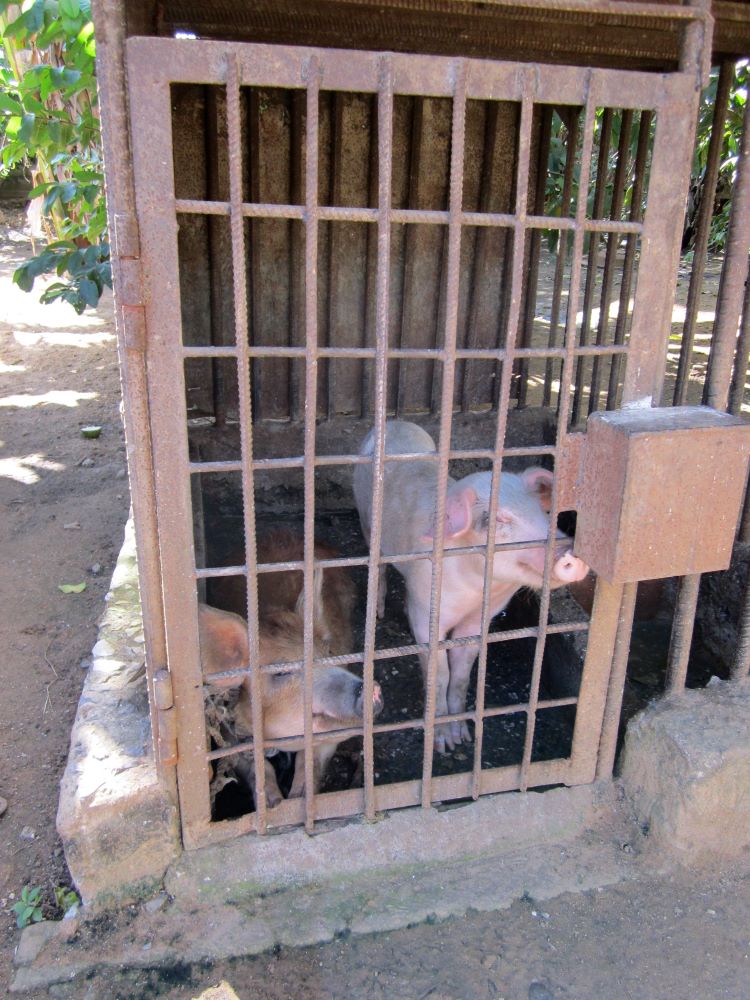Perhaps one of the most common characteristics of life in Cuba under Communist Party rule might be its surreal quality. Until recently, when access to the internet dramatically changed citizens’ ability to judge truth from rumor (or fiction), the Cuban government’s control over media cultivated a stable sense of safety in any environment. Typical of any authoritarian system, triumphalist depictions of reality were long considered necessary to Cuba’s rulers because they stoked citizens’ faith and discredited doubt. Thus, common crimes to foreigners seemed few since few were regularly reported, whether on television, radio, or the print press. However, in the early 2000s, one barometer of rural crime—even in isolated or small communities—was the sudden popularity of “pig prisons”, that is, handmade, brick-and-mortar houses with multiple locks for the keeping of domesticated pigs. While this peasant farmer allowed his swine to roam his property during the day and even meticulously bathed them on a regular basis, he locked them up overnight. If he did not, they would have been stolen by morning. And, as with the poor anywhere in the world, raising a pig in Cuba was (and still is) akin to owning a bank account. Pinar del Rio, December 2003.

